What Essential Oils Are Good for Jet Lag
Jet lag is a common issue that many travelers face when crossing multiple time zones, causing disruptions in their sleep patterns and overall well-being.
We explore what jet lag is, what causes it, and most importantly, how to prevent it.
We also discuss the benefits of using essential oils such as lavender, peppermint, and eucalyptus to combat jet lag, as well as different methods of using these oils effectively.
Discover how essential oils can help you beat jet lag and arrive at your destination feeling refreshed and rejuvenated.
Key Takeaways:
What is Jet Lag?
Jet lag is a temporary sleep disorder that occurs when individuals travel rapidly across multiple time zones, disrupting their internal body clock, also known as the circadian rhythm.
This disruption leads to a misalignment between the body’s natural rhythm and the time in the new location, resulting in symptoms such as fatigue, insomnia, irritability, and difficulty concentrating. Crossing multiple time zones quickly confuses the body’s internal clock, making it challenging to adjust to the new schedule. Long-distance travelers, especially those flying eastward, often experience more severe jet lag due to the shorter day length and quicker time zone changes. To alleviate symptoms, experts recommend adjusting sleep patterns before departure, staying hydrated, getting sunlight exposure in the new location, and gradually adapting to the local time.
What Causes Jet Lag?
Jet lag is caused by the misalignment between the body’s internal clock and the time in the new location, leading to symptoms affecting both the body and mind, such as fatigue, exhaustion, and disorientation.
When you travel across different time zones, your body’s circadian rhythm, responsible for regulating sleep-wake cycles, can get disrupted. This disturbance in the body’s natural rhythm can result in sleep disturbances, mood changes, and difficulties concentrating.
Experiencing jet lag can also impact your digestion, leading to issues like indigestion, changes in appetite, and a general feeling of being unwell. The body’s hormones, such as cortisol and melatonin, can be thrown off balance, further exacerbating the symptoms.
As your body gradually adapts to the new time zone, these symptoms often lessen, but the process can take a few days, depending on the individual and the number of time zones crossed.
How to Prevent Jet Lag?
Preventing jet lag involves strategies to mitigate fatigue and achieve balance in the body’s natural rhythm, enabling travelers to adapt more smoothly to new time zones.
One effective way to combat fatigue during travel is to stay hydrated by drinking plenty of water and avoiding excess caffeine and alcohol, which can dehydrate the body and worsen jet lag symptoms.
Maintaining a balanced diet rich in nutrients can help provide essential energy to combat fatigue. Establishing a consistent sleep schedule before the trip and gradually adjusting your bedtime to match the destination time zone can also aid in reducing the impact of jet lag.
For a holistic approach, incorporating mindfulness exercises and light physical activity during travel can help rejuvenate the body and promote overall well-being.
Adjust Sleep Schedule Before Traveling
Before traveling, adjusting the sleep schedule gradually can help the body adapt to the new time zone and improve the production of melatonin, a hormone that regulates sleep-wake cycles.
One effective way to adjust your sleep schedule is by gradually shifting your bedtime and waking time closer to those of your destination.
- This gradual adjustment helps your body acclimate to the upcoming time change, supporting the natural release of melatonin at the appropriate times.
Plus adjusting bedtime, exposing yourself to natural light during waking hours and avoiding electronic devices before bed can enhance melatonin production.
Stay Hydrated During Flight
Staying hydrated during the flight is crucial to combat the dehydrating effects of air travel and help the body cope better with changes in time zones.
When flying, the cabin conditions can lead to increased dehydration due to the low humidity levels. To prevent this, it’s essential to drink plenty of water before, during, and after the flight. Hydration helps regulate body temperature, improves blood circulation, and supports overall well-being. Bringing a reusable water bottle and asking for refills on the plane ensures a steady intake of fluids. Limiting alcohol and caffeine consumption can help maintain hydration levels. Remember to moisturize your skin and use a hydrating mist to combat the dry air in the cabin.
Avoid Alcohol and Caffeine
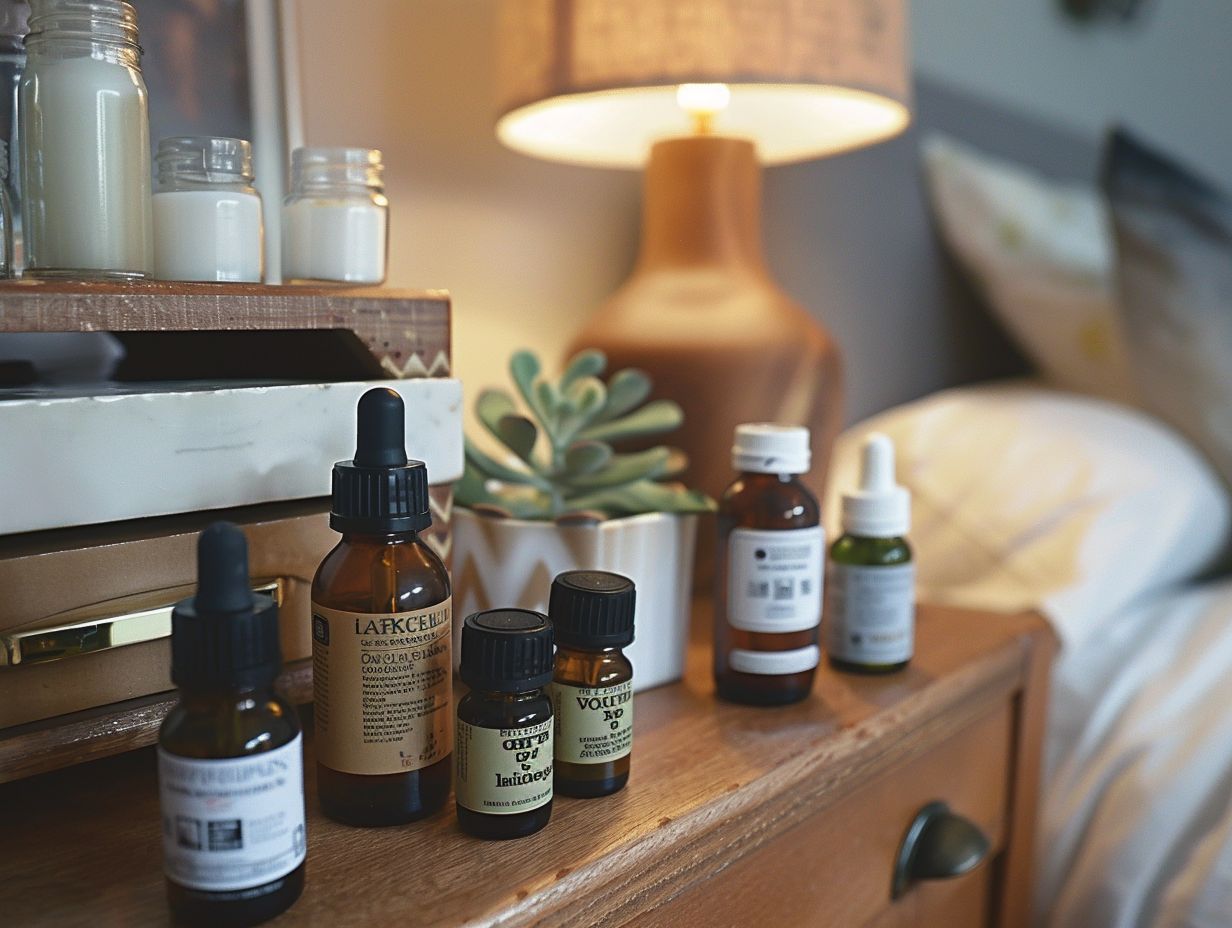
Alcohol, known for its sedative effects, may help you fall asleep faster, but it can lead to more fragmented and less restful sleep throughout the night.
Caffeine, on the other hand, is a stimulant that can interfere with your ability to fall asleep and reduce the overall quality of your rest.
When consumed close to bedtime, both alcohol and caffeine can delay the onset of sleep, reduce rapid eye movement (REM) sleep, and result in more frequent awakenings during the night.
To enhance your adjustment to different time zones, it’s recommended to limit alcohol and caffeine intake, especially in the hours leading up to bedtime.
Get Some Sunlight Upon Arrival
Upon arrival at the destination, getting exposure to natural sunlight can have therapeutic effects on the body, helping reset the internal clock and aiding in combating jet lag symptoms.
This exposure to sunlight triggers the release of serotonin in the brain, a neurotransmitter associated with mood regulation and feelings of well-being. It also helps regulate the production of melatonin, the hormone responsible for promoting sleep. This natural rhythm alignment not only improves mood and energy levels but also enhances the body’s ability to adapt to new time zones seamlessly.
The light exposure during the day signals to your body that it’s time to be awake, promoting alertness and mental clarity. Simultaneously, reducing light exposure in the evening stimulates melatonin production, signaling the body that it’s time to wind down for sleep.
What Essential Oils Can Help with Jet Lag?
Certain essential oils, such as lavender and peppermint, have been found to aid in alleviating jet lag symptoms through the therapeutic effects of aromatherapy.
These oils are known for their calming and soothing properties, which can help relax the mind and body, preparing them for restful sleep after a long flight.
-
Lavender oil, with its floral and herbaceous scent, is a popular choice for its ability to promote relaxation and reduce anxiety, making it ideal for combating the stress and disorientation often associated with jet lag.
-
Peppermint oil, on the other hand, is invigorating and refreshing, helping to clear the mind and boost alertness, which can be beneficial in combating fatigue and promoting mental clarity when adjusting to a new time zone.
Lavender Oil
Lavender oil is a popular choice for combating jet lag, and it can be used in DIY inhalers to inhale the soothing aroma, promoting relaxation and better sleep quality during travel.
One of the specific benefits of using lavender oil to address jet lag symptoms is its ability to help regulate sleep patterns and promote a sense of calmness even in unfamiliar environments. Research suggests that the scent of lavender can reduce anxiety and improve the quality of sleep, making it an excellent natural remedy for travelers seeking relief from disrupted circadian rhythms.
Creating your own DIY inhalers with lavender oil is a simple and cost-effective way to enjoy its benefits on the go. To make an inhaler, all you need are a few drops of lavender oil added to a cotton wick or pad placed inside a small container. Whenever you feel fatigued or restless during your journey, simply inhale the gentle fragrance to soothe your senses and induce a state of relaxation.
Peppermint Oil
Peppermint oil is known for its refreshing and invigorating properties, making it a suitable choice to combat fatigue and restore balance to the body’s energy levels during jet lag.
When feeling fatigued or struggling to stay alert, a few drops of peppermint oil can work wonders to uplift the senses and increase mental clarity. Its cooling sensation and minty aroma have a powerful impact on awakening the mind and rejuvenating the body. To make the most of its energizing effects, consider adding a drop or two to a diffuser or inhaling it directly from the bottle for a quick pick-me-up.
Eucalyptus Oil
Eucalyptus oil is effective in combating exhaustion and promoting mental clarity, making it a valuable aid for travelers experiencing jet lag and mental fatigue.
Eucalyptus oil contains properties that can uplift the mind and body, helping to alleviate feelings of lethargy and brain fog. One popular method to experience its rejuvenating benefits is through inhalation. You can add a few drops of eucalyptus oil to a bowl of hot water, cover your head with a towel, and breathe in the steam for a refreshing effect.
- Another way to use eucalyptus oil is through a relaxing massage. Mixing a few drops with a carrier oil such as coconut or almond oil and massaging it onto your temples, neck, and shoulders can help relieve tension and improve focus.
- For those looking to combat jet lag, consider placing a few drops of eucalyptus oil on a cotton ball and inhaling the aroma during travel to stay alert and refreshed.
Lemon Oil
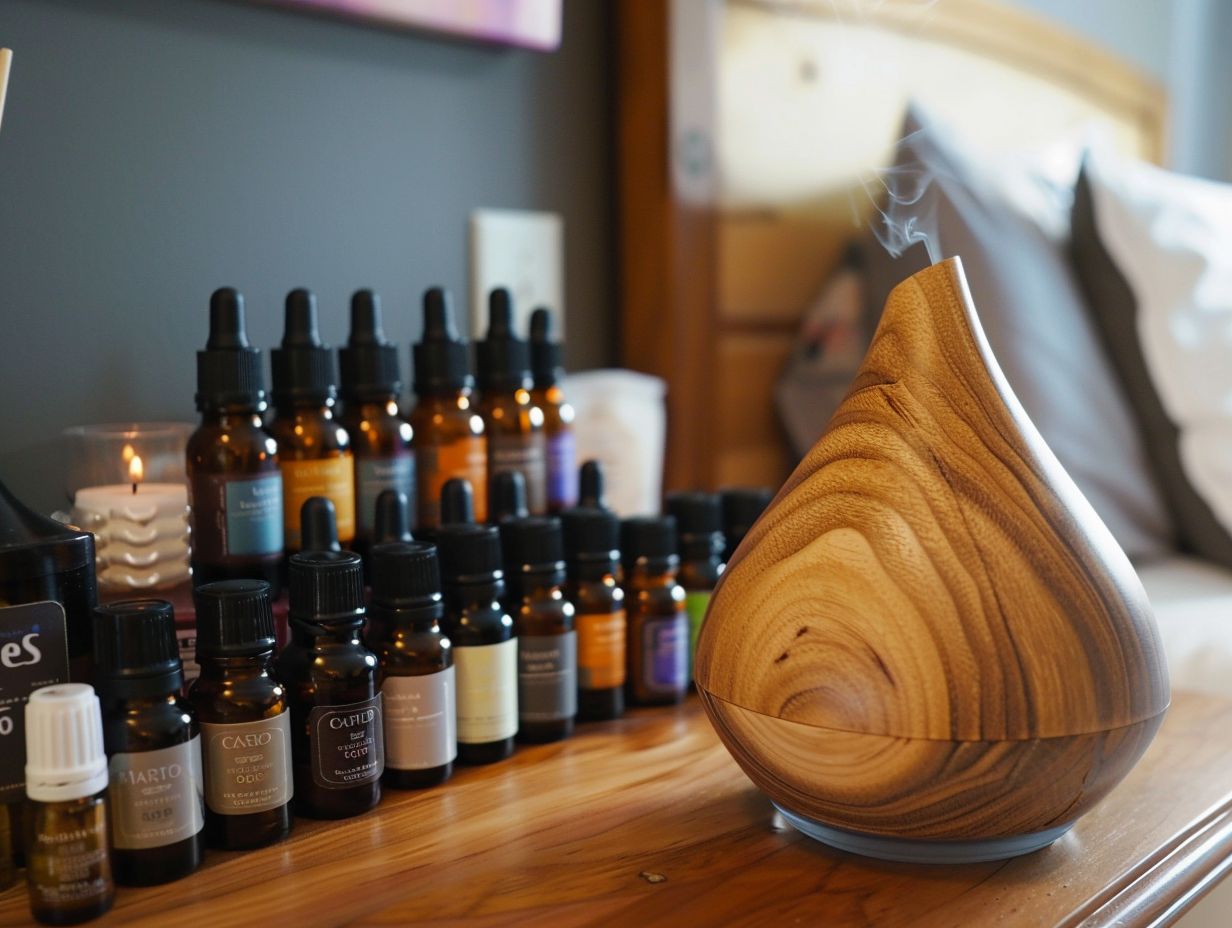
In terms of easing stress and anxiety, lemon oil works wonders due to its ability to reduce cortisol levels in the body, which are often elevated during times of stress. It can create a calming atmosphere, ideal for unwinding after a long day of travel or when adjusting to new time zones.
The fresh and citrusy aroma of lemon oil has been shown to uplift spirits and enhance mood, making it a great natural remedy for those feeling down or anxious. Whether inhaled directly or diffused in a room, the scent can create a soothing environment, perfect for relaxation and emotional balance.
Chamomile Oil
Chamomile oil is renowned for its calming and sleep-inducing properties, making it an excellent choice for promoting relaxation and aiding in restful sleep for individuals struggling with jet lag.
Chamomile oil, extracted from the chamomile plant’s flowers, contains compounds like bisabolol and apigenin, which have natural sedative effects, helping to lower stress levels and induce a state of tranquility.
Incorporating chamomile oil into your bedtime routine can help signal to your body that it is time to wind down, promoting a sense of calmness and easing the transition into sleep.
Whether diffused in your bedroom or added to a warm bath, the gentle aroma of chamomile oil can create a soothing environment conducive to restful sleep, especially beneficial for those adjusting to different time zones during travel.
How to Use Essential Oils for Jet Lag?
Utilizing essential oils for jet lag relief can be achieved through methods such as inhalation, topical application, and aromatherapy, allowing travelers to experience the therapeutic benefits of oils for better sleep and relaxation.
When utilizing essential oils for jet lag relief, inhalation serves as a quick and effective method. To benefit from inhalation, add a few drops of your chosen essential oil to a diffuser or simply inhale the aroma directly from the bottle. Inhalation can help you feel more alert and refreshed, making it a wonderful option for combating jet lag.
Topical application involves diluting essential oils with a carrier oil before applying them to pulse points, such as wrists and temples. This method allows the oils to be absorbed through the skin, enhancing their soothing effects and promoting relaxation. It’s a convenient way to experience the benefits of essential oils throughout the day.
Aromatherapy practices, such as adding a few drops of essential oils to a warm bath or using them in a massage oil, can create a calming atmosphere that helps ease jet lag symptoms and induce a sense of tranquility. By incorporating these methods into your travel routine, you can harness the power of essential oils to promote quality sleep and overall well-being.
Are There Any Risks or Side Effects of Using Essential Oils for Jet Lag?
While essential oils offer natural remedies for jet lag, it’s essential to be aware of potential risks and side effects, including allergic reactions, skin sensitivities, and contraindications with certain medical conditions or medications.
When using essential oils to combat jet lag, safety considerations play a crucial role in ensuring a positive experience. Before incorporating these oils into your routine, it’s advisable to perform a patch test on a small area of skin to check for any adverse reactions. Consulting with a healthcare professional, especially if you have existing medical conditions or are taking medication, can help you navigate potential contraindications. By following these steps and adhering to the recommended usage guidelines, you can mitigate the chances of experiencing unwanted side effects.
Conclusion
Managing jet lag through holistic approaches like essential oils can promote balance, enhance alertness, and improve overall well-being for travelers seeking natural remedies to combat the effects of time zone changes.
Essential oils are potent extracts derived from plants that have been used for centuries to aid in relaxation, rejuvenation, and overall wellness. When used in the context of managing jet lag, these natural remedies can help the body adjust to new sleep schedules and combat fatigue. Inhaling or applying essential oils such as lavender, peppermint, or chamomile can promote relaxation, reduce stress, and induce a sense of calm during travel.
Essential oils can also support the immune system, boost mental clarity, and improve sleep quality. By incorporating these aromatic oils into your travel routine, you can create a soothing and grounding environment that fosters a sense of well-being and comfort while on the go.
Final Thoughts and Recommendations
As a final note, incorporating essential oils into your travel routine can provide therapeutic effects, aid in relaxation, and contribute to a smoother adjustment to different time zones, ensuring a more enjoyable and restful travel experience.
By integrating essential oils into your travel essentials, you equip yourself with natural remedies that can soothe both body and mind amidst the challenges of jet lag. The calming scents of lavender or chamomile can be particularly beneficial in alleviating stress and promoting better sleep patterns during long flights or unfamiliar accommodation. Creating a personal aromatherapy travel kit with a few select oils allows for convenient access to relaxation benefits at any point during your journey, helping you maintain a sense of well-being and adaptability while away from home.
Jet Lag FAQ
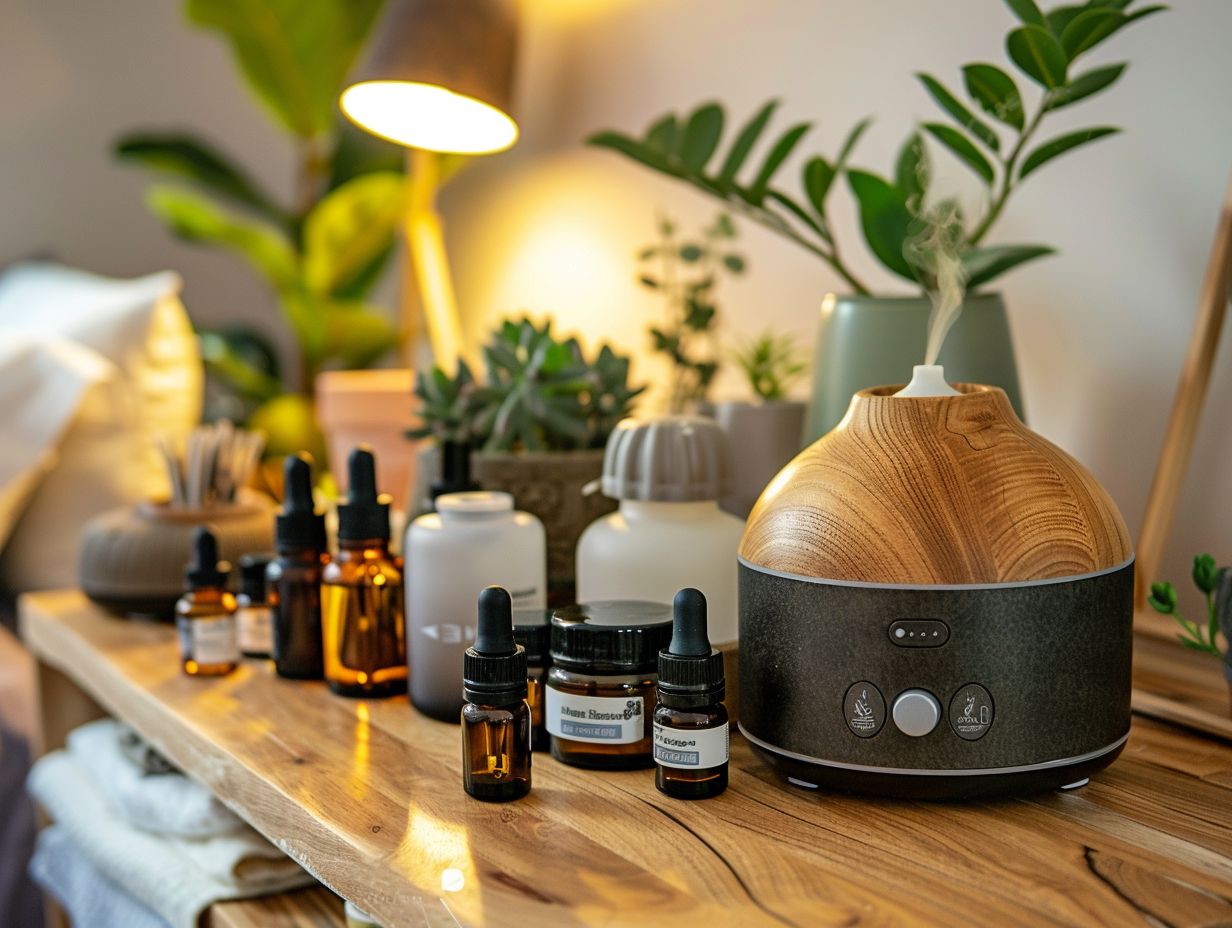
-
1. What causes jet lag?
Jet lag occurs when your body’s internal clock is out of sync with the time zone you are in due to rapid travel across multiple time zones. The sudden change disrupts your natural sleep-wake cycle, leading to fatigue, insomnia, and other symptoms.
-
2. How long does jet lag last?
The duration of jet lag varies from person to person but typically resolves within a few days as your body adjusts to the new time zone. The more time zones crossed, the longer it may take to recover.
-
3. What are some tips to minimize jet lag?
Some strategies to minimize jet lag include adjusting your sleep schedule a few days before travel, staying hydrated, exposing yourself to natural light, and taking short naps to combat fatigue. Melatonin supplements and strategic use of caffeine can help regulate your sleep cycle.
Additional Resources and References
For further information on managing jet lag, explore the following additional resources and references that delve deeper into the science behind circadian rhythms, sleep disorders, and natural remedies for adjusting to new time zones.
One highly recommended resource is the book ‘Why We Sleep’ by Matthew Walker, a renowned sleep scientist who provides valuable insights into the importance of sleep and its impact on our daily lives. The National Sleep Foundation offers practical tips and guidelines on combating jet lag through their comprehensive online articles and research publications. For those seeking expert opinions, consulting with a sleep specialist or a travel medicine physician can offer personalized strategies to minimize the effects of jet lag.
Frequently Asked Questions
What Essential Oils Are Good for Jet Lag?
There are several essential oils that are beneficial for treating jet lag, including peppermint, lavender, eucalyptus, rosemary, lemon, and bergamot.
How Do Peppermint Essential Oils Help with Jet Lag?
Peppermint essential oil has a refreshing and invigorating scent that can help combat fatigue and boost energy levels, making it a great choice for treating jet lag.
Why is Lavender Essential Oil Recommended for Jet Lag?
Lavender essential oil has calming properties that can help promote relaxation and reduce anxiety, making it an effective remedy for combatting jet lag-induced sleep disturbances.
Can Eucalyptus Essential Oil Help with Jet Lag Symptoms?
Yes, eucalyptus essential oil has a refreshing and uplifting scent that can help alleviate mental fatigue and improve focus, making it a good choice for treating jet lag.
What Benefits Does Rosemary Essential Oil Have for Jet Lag?
Rosemary essential oil has stimulating properties that can help increase alertness and mental clarity, making it a useful remedy for managing jet lag symptoms.
How Does Lemon Essential Oil Help with Jet Lag?
Lemon essential oil has a refreshing and energizing aroma that can help reduce feelings of exhaustion and improve mood, making it a great choice for treating jet lag.

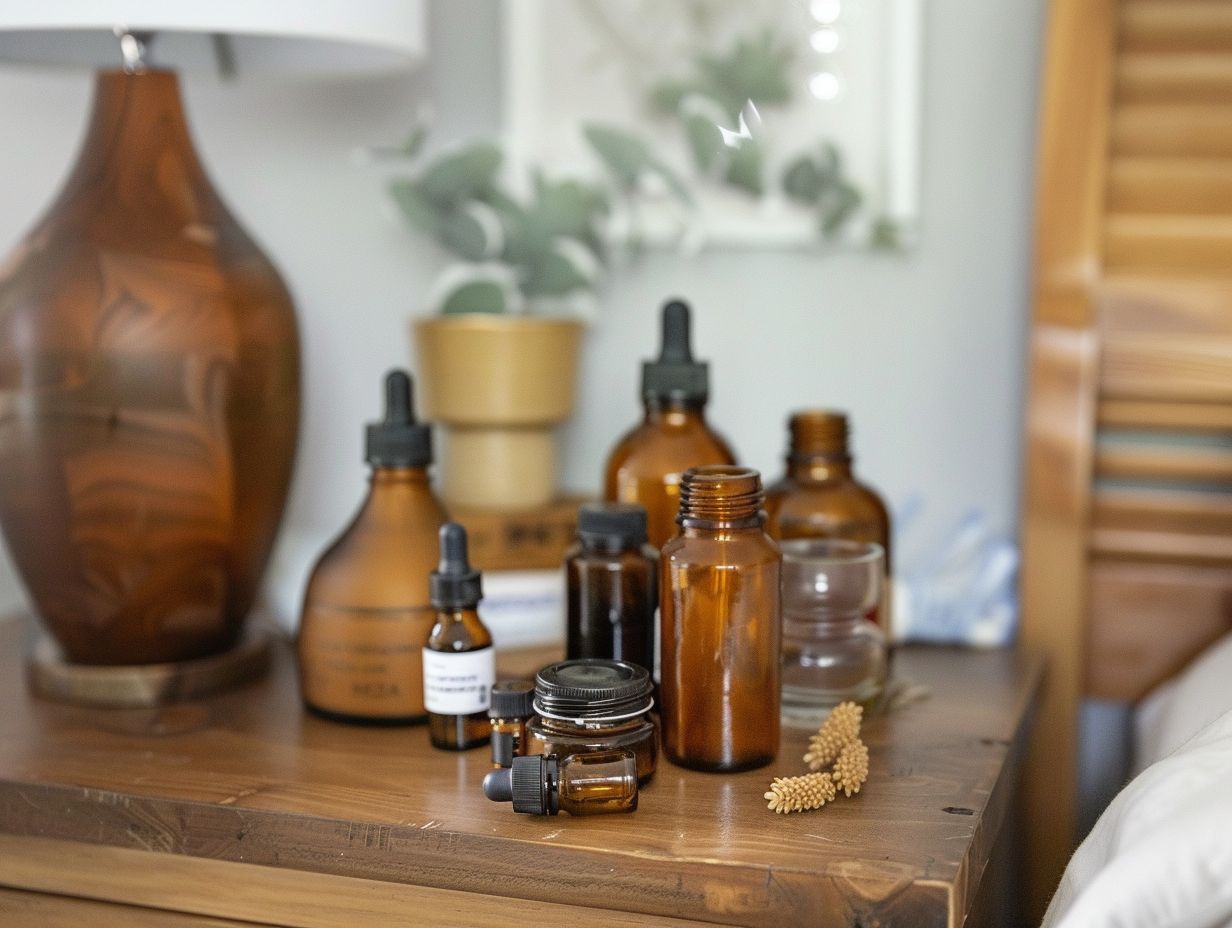


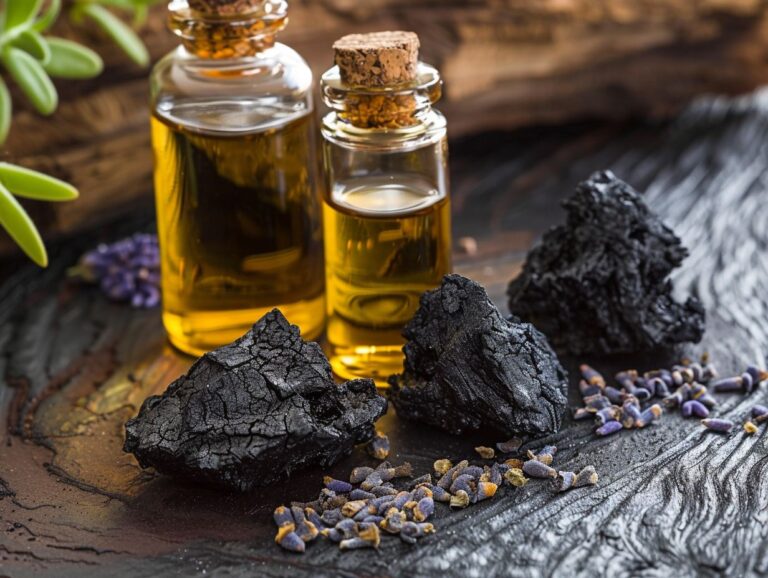
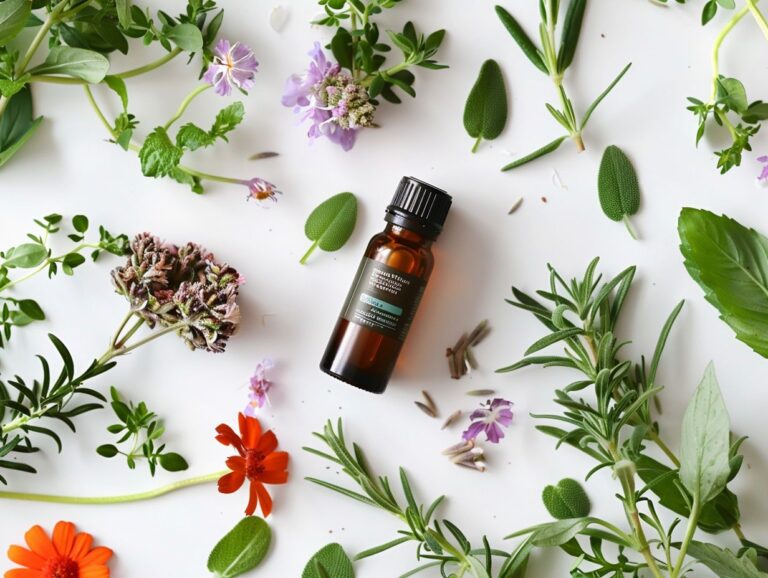

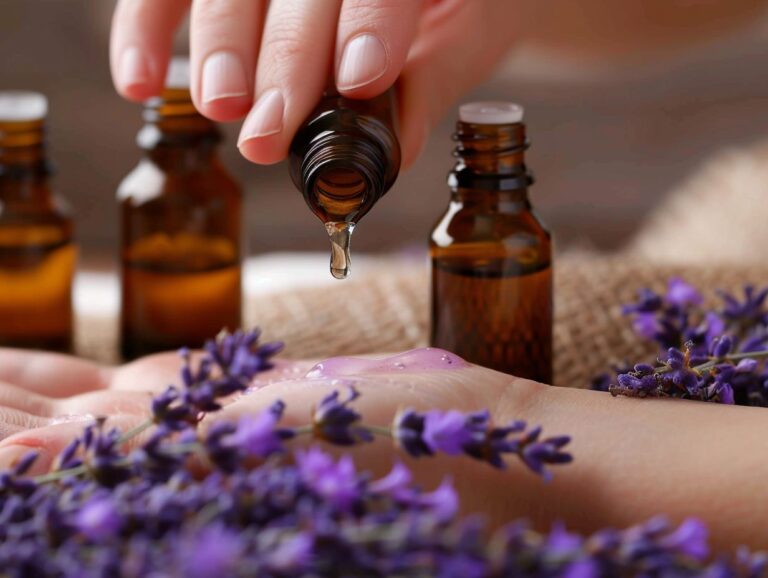
One Comment